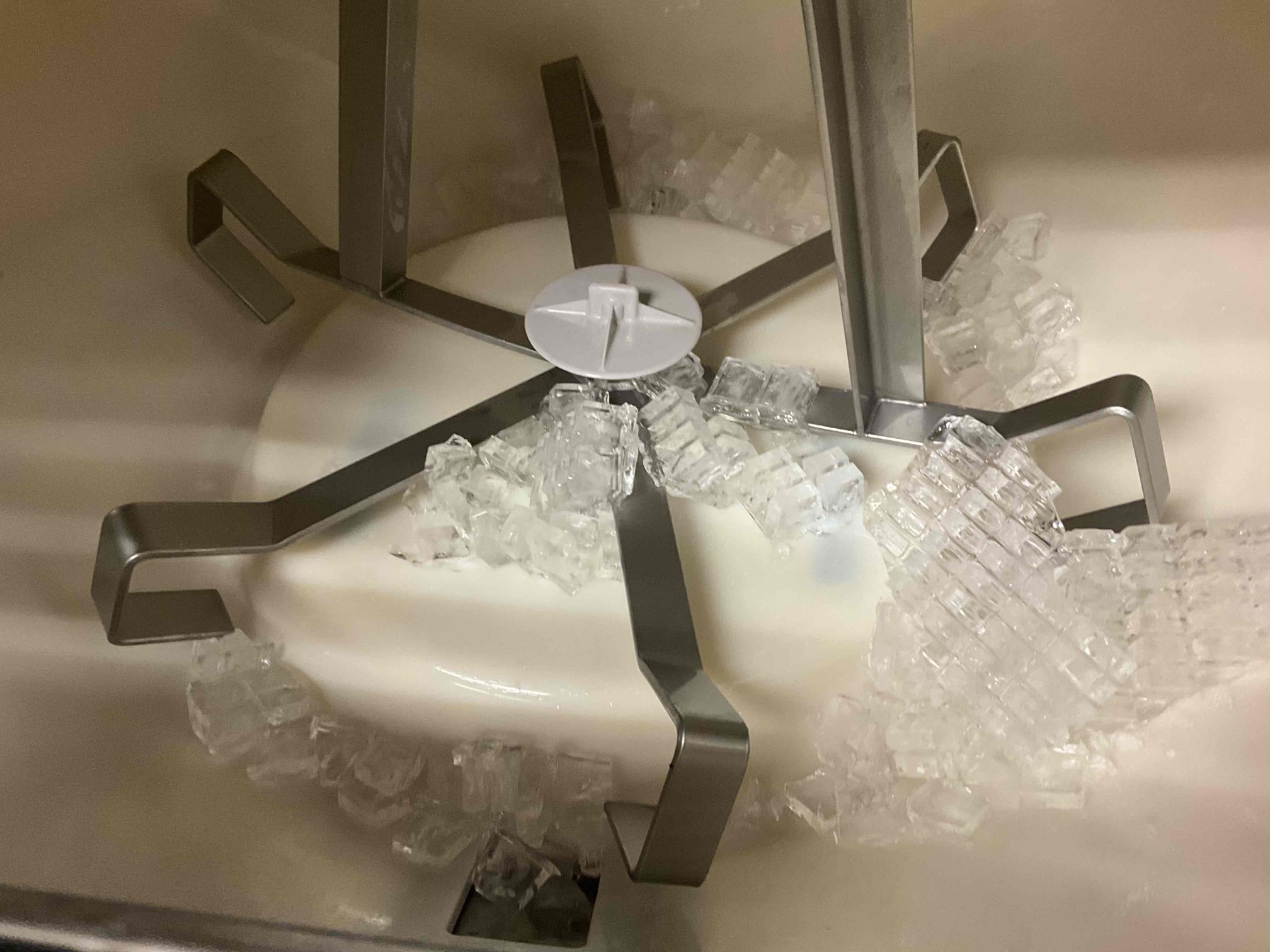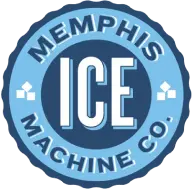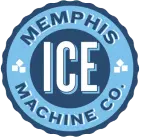proudly serving
the mid-south
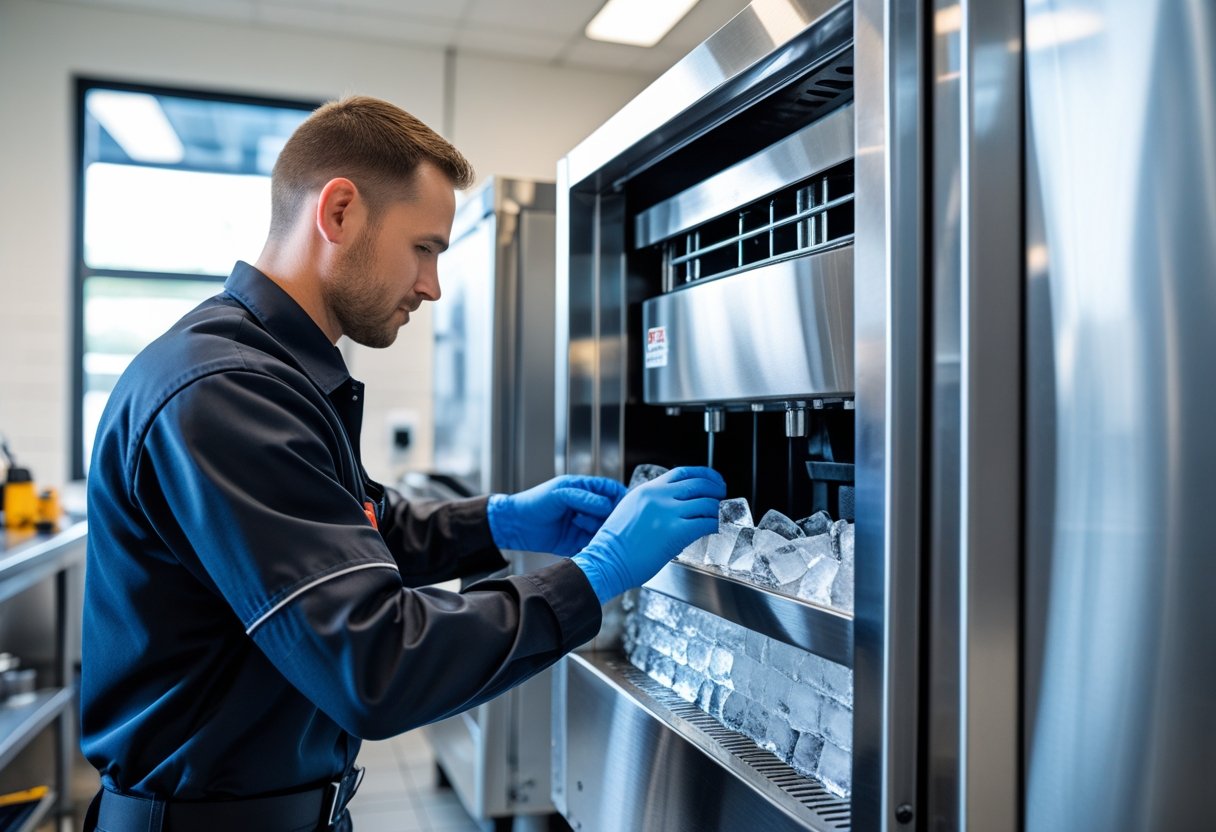
Signs Your Ice Machine Needs a Service to Keep Ice Fresh and Reliable
Your ice machine is a big part of keeping your business running. When it starts making strange noises, slows down, or produces ice that looks cloudy or tastes off, those are clear signs it needs service. Spotting these problems early can save you from expensive repairs and downtime.
At Memphis Ice, we’ve been helping Mid-South businesses stay cool since 1977. Whether you run a restaurant, hospital, or hotel, knowing when to call for service means you keep the ice flowing. Quick fixes and regular maintenance go a long way, especially when demand spikes in summer.
Don’t wait for your ice machine to fail on a busy day. Watch for strange sounds, leaks, or slow dispensing. Taking care of your equipment now helps it stay reliable longer.
Warning Signs Your Ice Machine Needs Service
Your ice machine will usually give you some warning before things get out of hand. Paying attention to these signals helps you avoid bigger headaches that can disrupt your business. Listen for odd sounds, watch for leaks, and keep an eye on ice quality.
Unusual Noises During Operation
If your ice machine starts making odd noises—grinding, buzzing, rattling—it’s time to pay attention. These sounds often mean parts are worn out or there’s a problem with the compressor or motor.
Sometimes, sediment or mineral buildup creates extra strain and noise. If you hear anything out of the ordinary, it’s smart to get a service check before things get worse.
Inconsistent Ice Production
When your ice machine starts making less ice or takes longer, that’s a red flag. You might notice smaller cubes or just fewer in general.
Clogged water lines, dirty filters, or failing parts can all be the cause. Poor water flow means less ice, and that can throw off your whole operation. Memphis Ice techs see this a lot and can usually get things back on track quickly.
Visible Leaks or Water Pooling
Water pooling around your ice machine is never good. Leaks might come from cracked hoses, faulty seals, or blocked drains. If you spot puddles or constant dampness, it’s time to call for service.
Leaks waste water and can damage floors or electrical parts. Plus, wet floors mean slips and falls. Fixing leaks early is always cheaper and safer than waiting for a bigger failure.
Warm or Slushy Ice
Ice should be hard and cold—if it’s soft, slushy, or warm, something’s off. Usually, this means the refrigeration isn’t working right or the temperature control is out of whack.
Strange tastes or cloudy ice often show up with these issues. At Memphis Ice, we usually check refrigerant levels, clean condenser coils, or swap out worn parts. Getting your ice back to the right temp is crucial for keeping things fresh.
Ice Quality and Appearance Issues
The look and quality of your ice say a lot about your machine’s health. Problems like cloudy ice, odd smells, or weird shapes usually mean it’s time for service. Customers notice more than you think.
Cloudy or Discolored Ice Cubes
If your ice looks foggy, white, or has a weird tint, something’s wrong inside the machine. Cloudy ice usually happens when minerals or impurities freeze unevenly, or when filters are dirty.
Discolored ice may mean mold, bacteria, or rust are present. That’s a clear sign you need a deep cleaning or professional maintenance.
Clear, clean ice just tastes and looks better. Memphis Ice has seen regular cleaning fix these problems before they hurt a business’s reputation.
Odd Tastes or Odors
Ice that tastes bad or smells off is a big red flag for contamination. Bacteria, mold, or slime can build up in hidden spots, especially if cleaning is neglected.
Even tiny amounts of gunk can change the flavor and smell of ice. Not only is that a health risk, but it can also turn customers away.
Bad smells often come from stagnant water or poor drainage. Scheduling regular service and wiping down surfaces helps keep things fresh. If you notice this, don’t wait—get it checked out.
Irregular Ice Shapes
Misshapen or inconsistent ice cubes usually point to mechanical or water supply problems. Clogged nozzles, low water pressure, or worn parts can all mess with ice formation.
Irregular ice doesn’t cool drinks well and hints your machine isn’t running right. If you see this, check for leaks or blockages, then have a tech look at water lines and settings. Keeping things in shape means steady ice when you need it.
Performance and Efficiency Problems
Your ice machine’s ability to meet demand depends on steady performance. If it slows down, cycles on and off too much, or uses more energy than usual, it’s trying to tell you something. These problems can drain your time and budget.
Slow Ice Making Cycle
If your ice machine takes longer to make a batch, something’s up. Clogged filters, mineral buildup, or worn parts are often to blame. A slow cycle means less ice when you need it, which is especially rough during rushes.
When your machine works harder just to keep up, that extra strain can cause faster wear. Don’t wait—schedule a service call before you’re left with no ice at all.
Frequent Power Cycling
If your ice machine keeps turning on and off in quick bursts—called power cycling—it’s probably struggling with temperature control or ice levels. Dirty condenser coils, bad sensors, or electrical issues are common causes.
Frequent cycling wastes energy and wears out parts faster. It can also mess with ice quality, leaving you with cloudy or weirdly shaped cubes. If you spot this, get a technician to check it out.
Excessive Energy Consumption
If your electric bill jumps or the machine feels hotter than usual, it might be using too much energy. Dirty coils, inefficient compressors, or old age can all be the culprits.
High energy use costs you more and means your equipment isn’t running right. Regular maintenance—cleaning and checking parts—keeps things efficient season after season.
Visible Wear and Maintenance Concerns
Watch for damage or buildup on your ice machine. Rust, mold, or dirty filters can all impact performance and ice quality. Catching these early helps you avoid bigger headaches.
Rust or Mold Development
Rust spots or mold growth inside or around your machine are serious. Rust weakens metal, which can lead to leaks or breakdowns. Mold ruins taste and smell, and it’s a health risk.
Look for discoloration or slimy residue where water collects—trays, lines, drains. If you spot these, clean the machine and schedule maintenance. Letting mold or rust go can end up costing you a lot more, or even get you in trouble with health codes.
Clogged or Dirty Filters
Clogged or dirty filters slow down ice production and mess with water flow. Minerals, scale, and debris build up over time, making filters less effective. You might notice slower ice-making, odd tastes, or even contamination.
Check water and air filters regularly. Clean or swap them out as needed. Memphis Ice always recommends keeping filters clean to avoid downtime and expensive repairs. A quick monthly check can save you from bigger problems later.
Electrical and Mechanical Warning Signs
Your ice machine depends on its electrical and mechanical systems. When something’s off, you’ll usually get a warning—lights, error codes, or the machine just not responding. Spotting these early can save you a lot of hassle.
Error Codes or Warning Lights
Many commercial ice machines flash lights or show error codes when there’s trouble. These usually point to sensor failures, water supply issues, or electrical faults.
If you see blinking lights or error codes, don’t ignore them. Check your manual or call a service expert—they can tell you what’s wrong.
Memphis Ice techs are used to helping customers figure out these alerts fast. Ignoring them can lead to a total shutdown or damage.
Unresponsive Controls
If the controls on your ice machine stop working—buttons don’t press, screens freeze—you might have electrical or mechanical trouble. Sometimes, power interruptions make machines lock up for safety. A reset might help, but if it keeps happening, you need a pro.
Keep controls clean and dry. Moisture or grime can cause problems. If your controls aren’t responding, it’s time for service before production stops.
When to Call a Professional for Ice Machine Service
Call a professional when your ice machine starts showing signs it’s not working right. Unusual noises, like grinding or clunking, usually mean mechanical issues. If your machine’s making less ice, or the ice looks or tastes off, it’s time for help.
Leaks or water pooling are big red flags. These can cause damage if you let them go. Slow dispensing or clogging often means a blockage, which a pro can fix quickly.
Regular maintenance matters. Most ice machines need service every six months or so. If you use yours heavily or the ice quality drops, don’t wait for a breakdown. Memphis Ice recommends scheduling service sooner to avoid expensive repairs.
Sometimes resetting the machine helps, but if that doesn’t work, call a technician. At Memphis Ice, we’ve kept businesses cool since 1977. Our techs can diagnose and fix issues fast, so you don’t lose valuable ice production.
If you want your commercial ice machine to stay reliable, watching for these signs will help you know when to reach out. Don’t put it off—quick action keeps your business running without ice interruptions.
Preventive Maintenance Tips for Ice Machines
Taking care of your ice machine isn’t just a chore—it’s a smart move that saves headaches down the road. Start by setting up a regular cleaning schedule. Give the inside a good scrub, including the ice bin and water lines, about every three months. That helps keep funky tastes and annoying clogs at bay.
Don’t forget the filters. When filters get dirty, water flow drops and your ice just isn’t as good. Swap them out when they’re looking rough or whenever the manufacturer says it’s time.
Listen for odd noises or notice if ice production slows down. These little hints usually mean something’s up. Catching problems early can save you from big, expensive repairs later.
Try to keep your machine in a climate-controlled spot if you can. Extreme temperatures really do a number on these units and can cause all sorts of issues.
Memphis Ice has maintenance plans that take care of all this stuff for you. With nearly five decades serving the Mid-South, they know how to keep machines running without drama.
Here’s an easy checklist to keep things on track:
| Task | How Often |
|---|---|
| Clean interior and bin | Every 3 months |
| Replace water filters | As needed or quarterly |
| Inspect for leaks/noises | Monthly |
| Check machine placement | Annually |
A little routine care keeps your ice tasting good and your machine humming along. If you’re ever unsure, just reach out to an expert.
Frequently Asked Questions
Staying alert to changes in your ice machine can really pay off. Notice the sounds, the look of your ice, or if it’s just not keeping up—those are your early warning signs.
What are the common indicators that my ice machine isn’t functioning properly?
Watch for slow ice output, weird smells, or cloudy cubes. Water leaks or puddles around the unit are big red flags. If the dispenser jams or slows down, that’s another clue.
How can I tell if my ice machine requires professional maintenance?
When you hear strange noises or see a drop in ice production, it’s probably time to call for help. Regular checkups can spot worn parts before they break down. Memphis Ice suggests booking maintenance if you notice any decline.
What signs should prompt me to clean or service my ice maker?
If your ice comes out cloudy or smells off, it’s definitely time to clean. Also, leaks or odd-shaped ice mean it’s time for a service. Dirt and scale can mess with both ice quality and the machine’s health.
Can strange noises from my ice machine suggest it needs servicing?
Absolutely. Grinding, buzzing, or rattling usually means something’s worn out or clogged. Don’t ignore these sounds—they almost always get worse and can lead to a breakdown.
What does it mean if my ice machine is producing smaller or misshapen cubes?
Usually, that means low water pressure, dirty filters, or mineral buildup. It’s a sign your machine needs cleaning or maybe a quick repair to get back to making perfect cubes.
How often should a typical ice machine be serviced to prevent issues?
Most commercial ice machines do well with service about every 6 months. If you’re running yours in a busy spot or somewhere hot, you might want to bump that up to every 3 months. Honestly, a little regular attention goes a long way—your ice machine will thank you for it.
Recent News

How Ice and Refrigeration Power Life-Saving Research
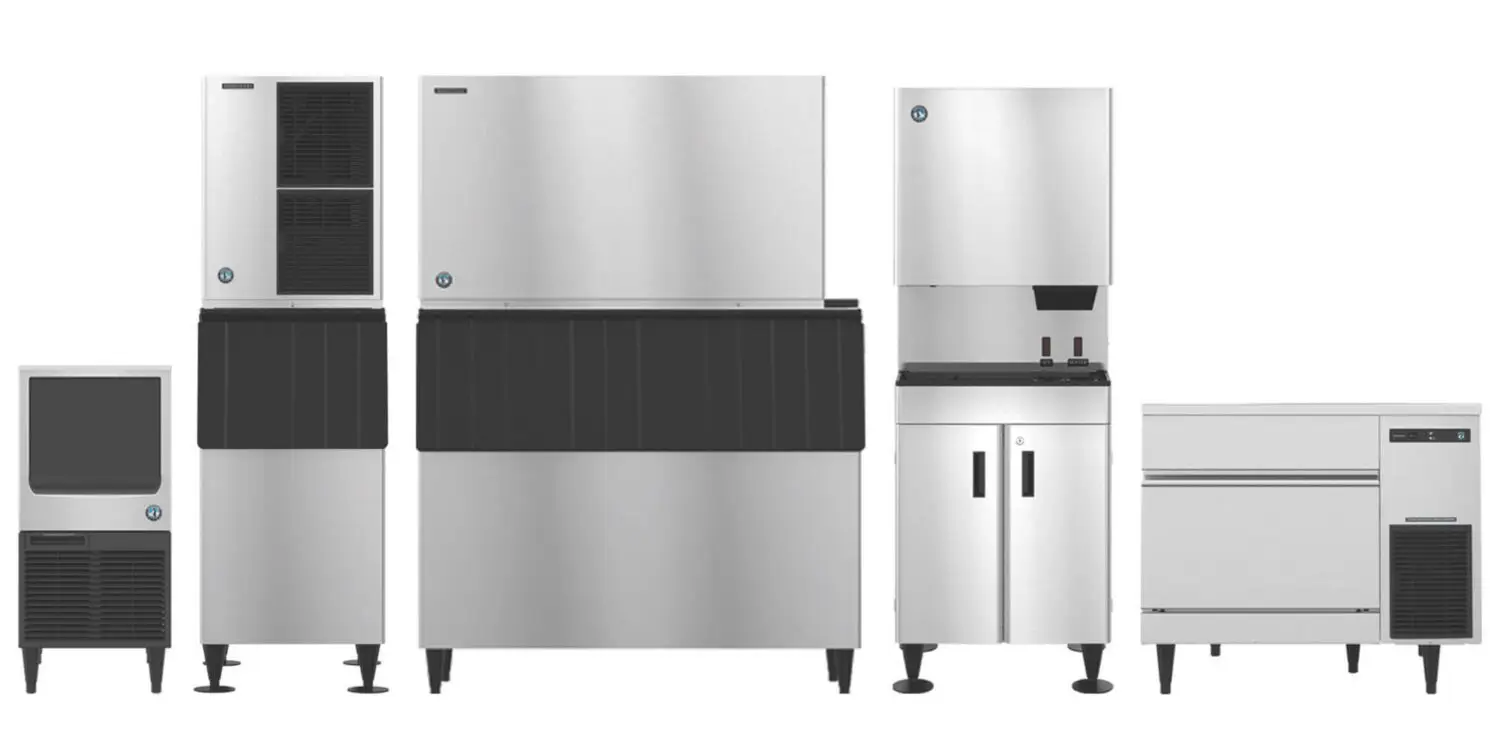
Healthcare Facility Ice Machine Servicing Tips for Reliable Cold Water
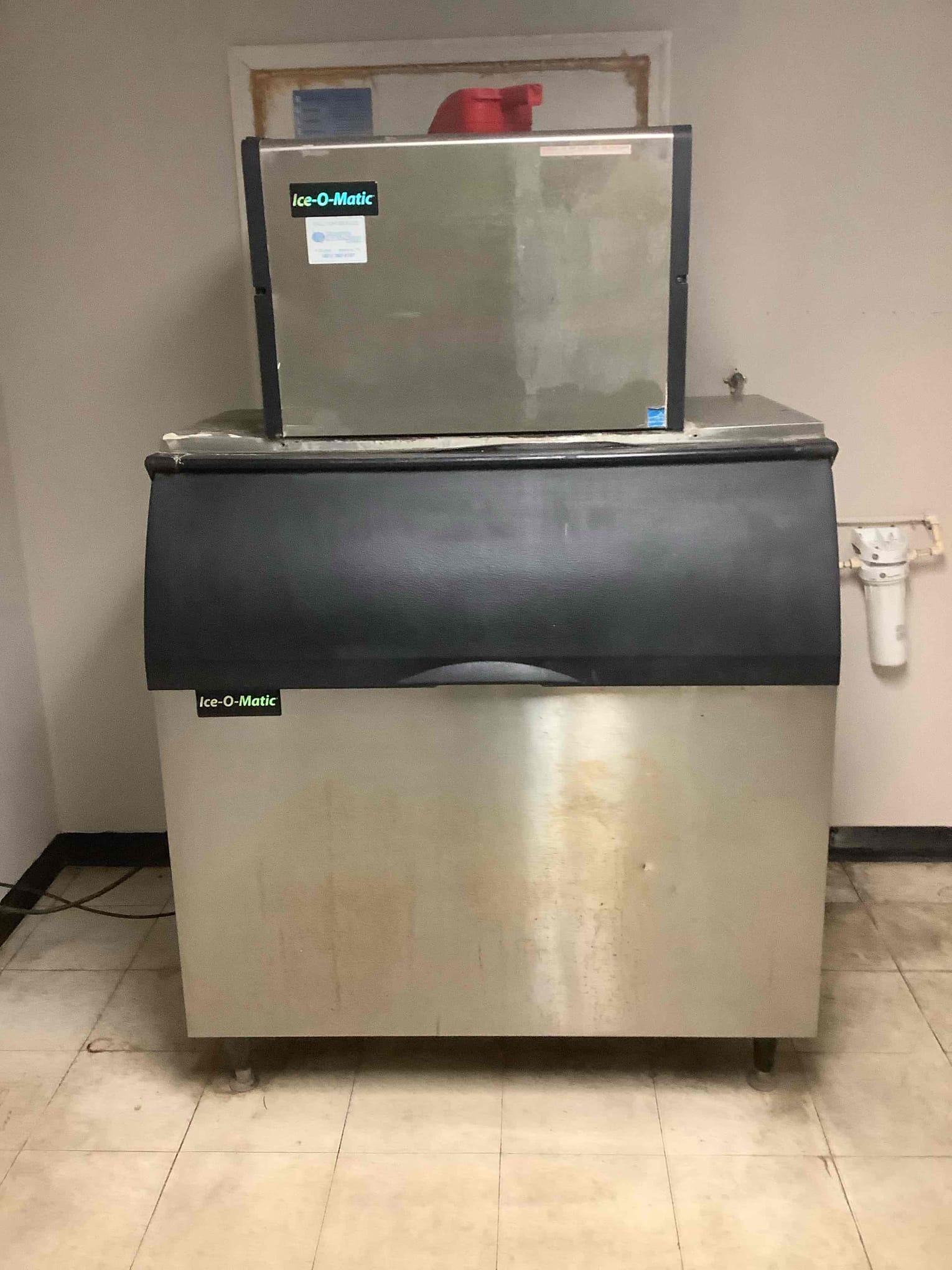
Factors That Impact Commercial Ice Machine Recovery Rate Explained Simply
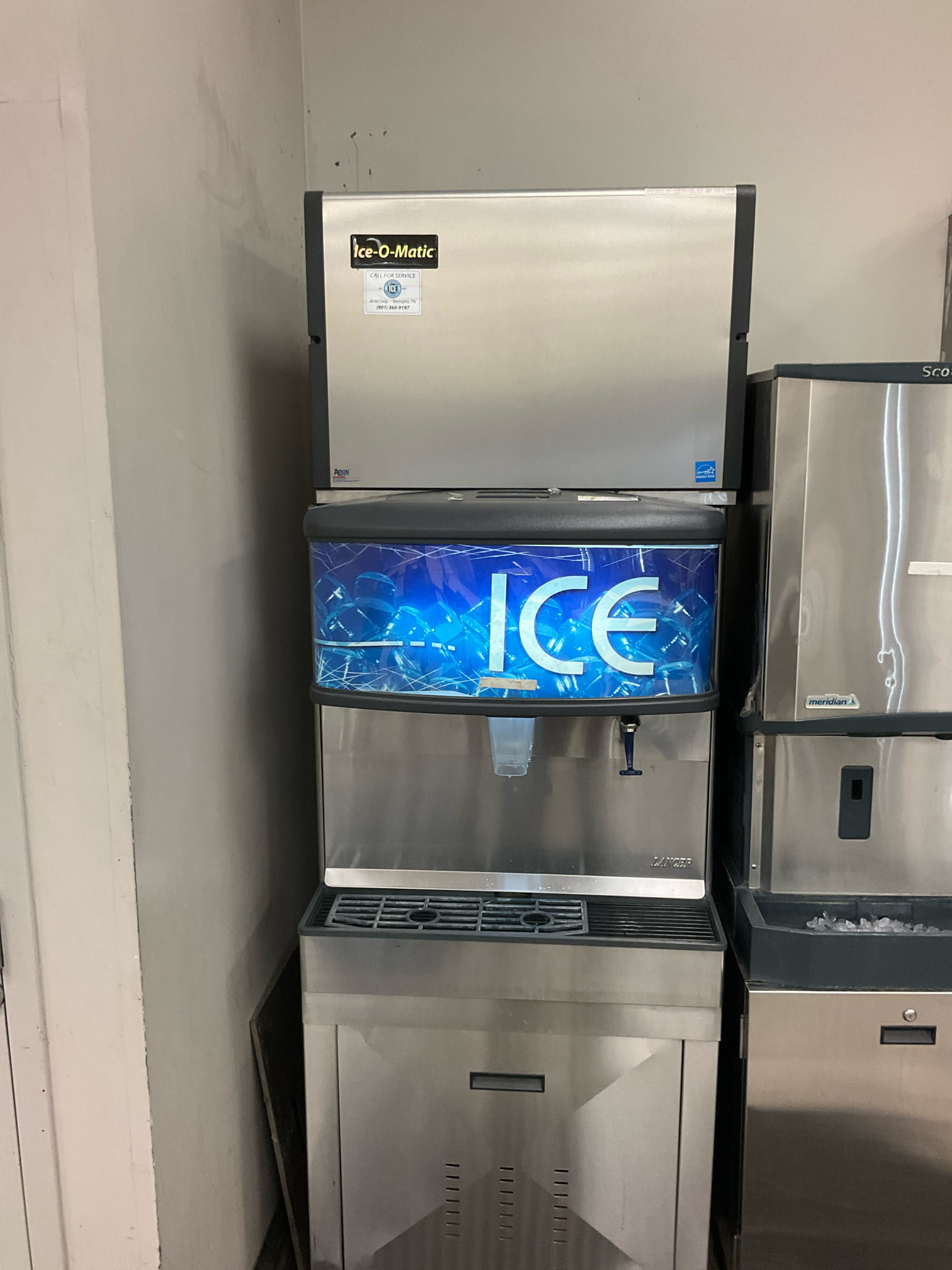
Signs Your Freezer Door Gaskets Need Replacement and How to Spot Them Early
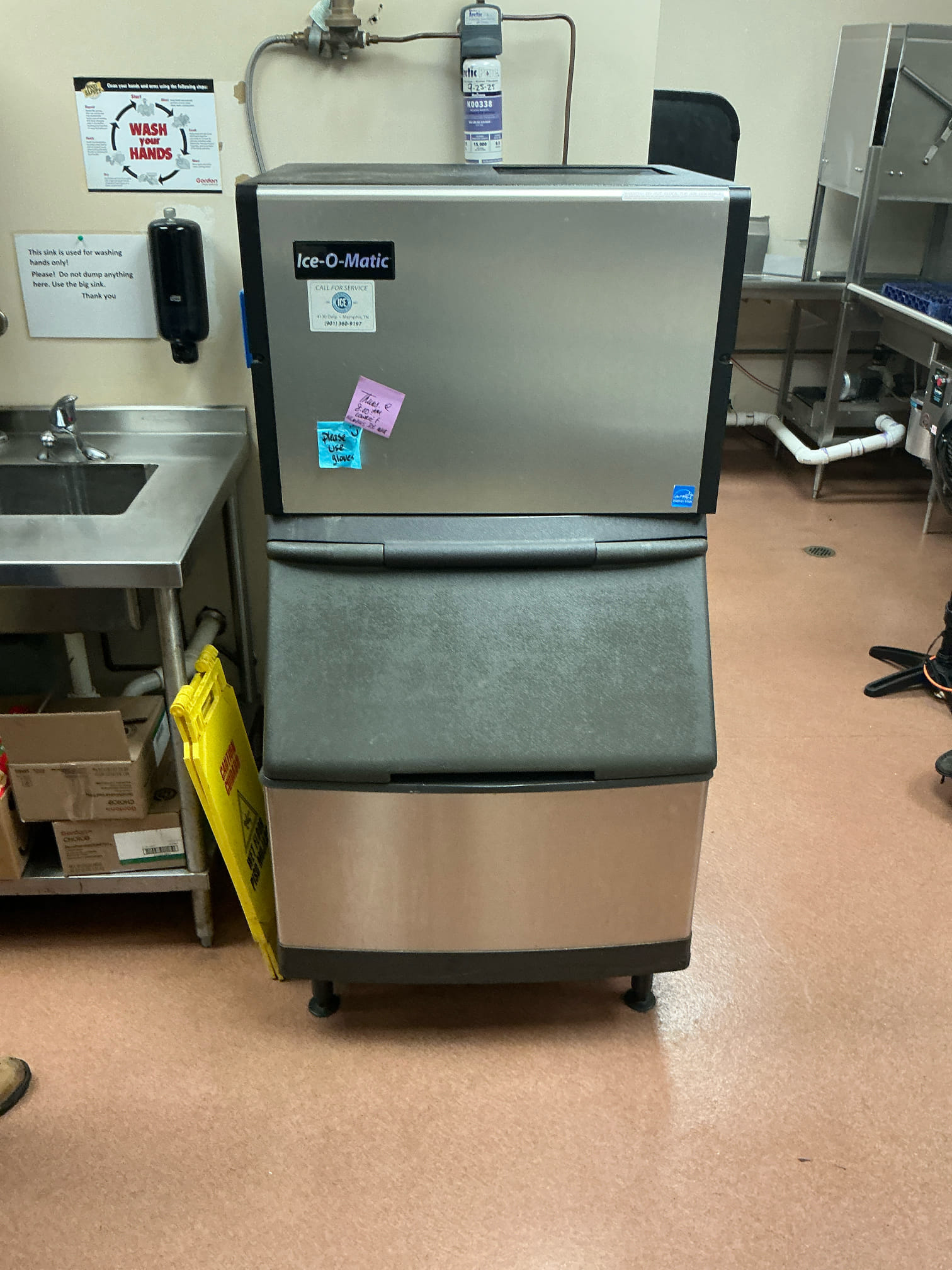
Signs Your Ice Machine Needs Deep Cleaning and How to Spot Them Early
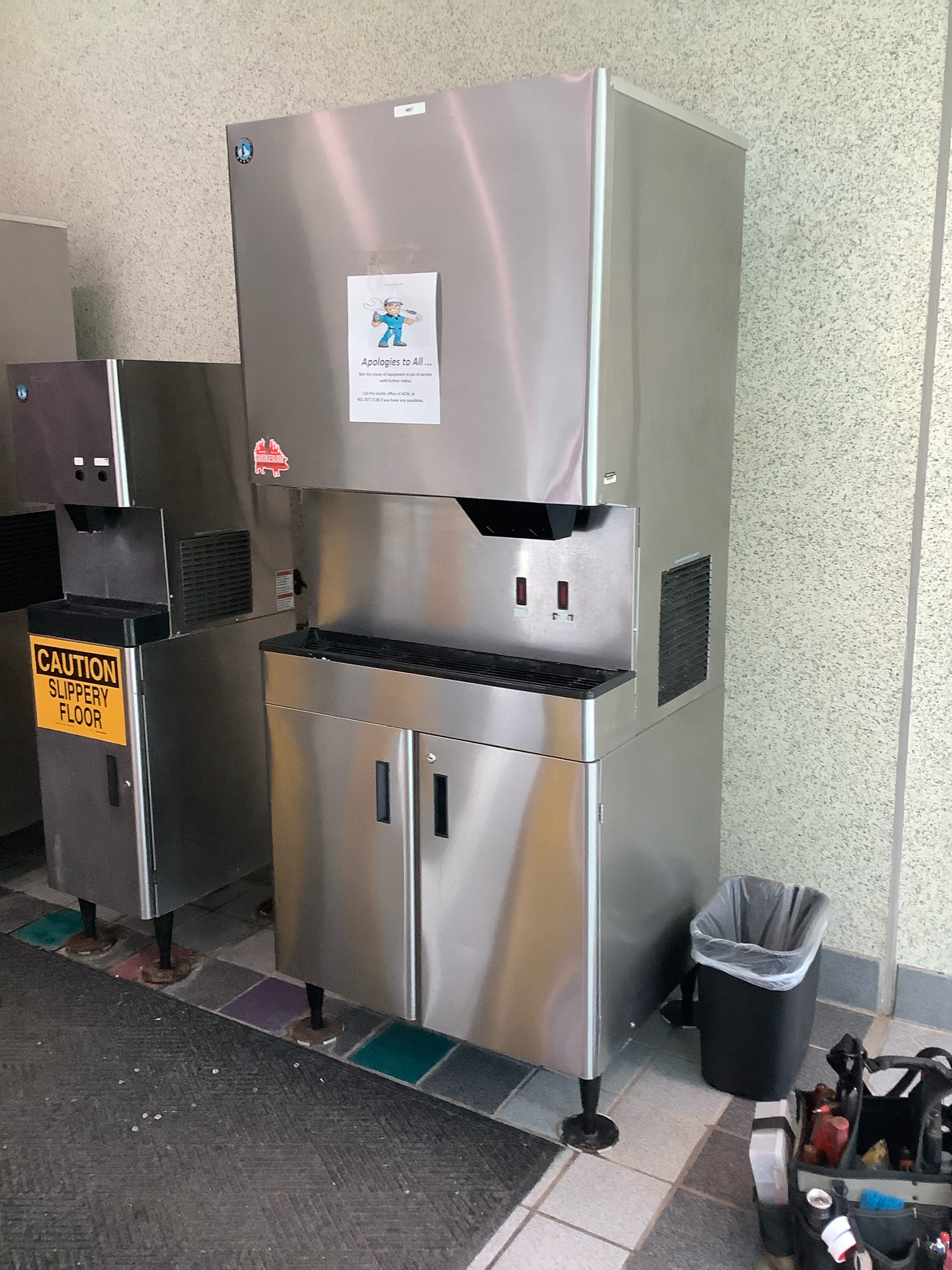
Signs Your Refrigeration System Is Undersized for Your Business and How to Fix It
